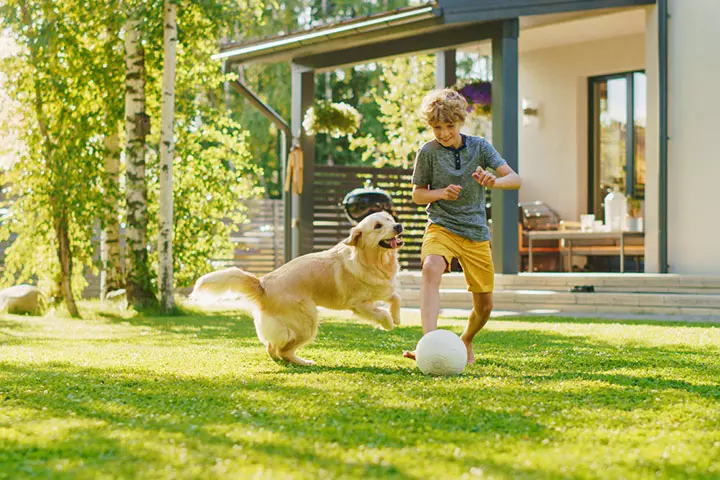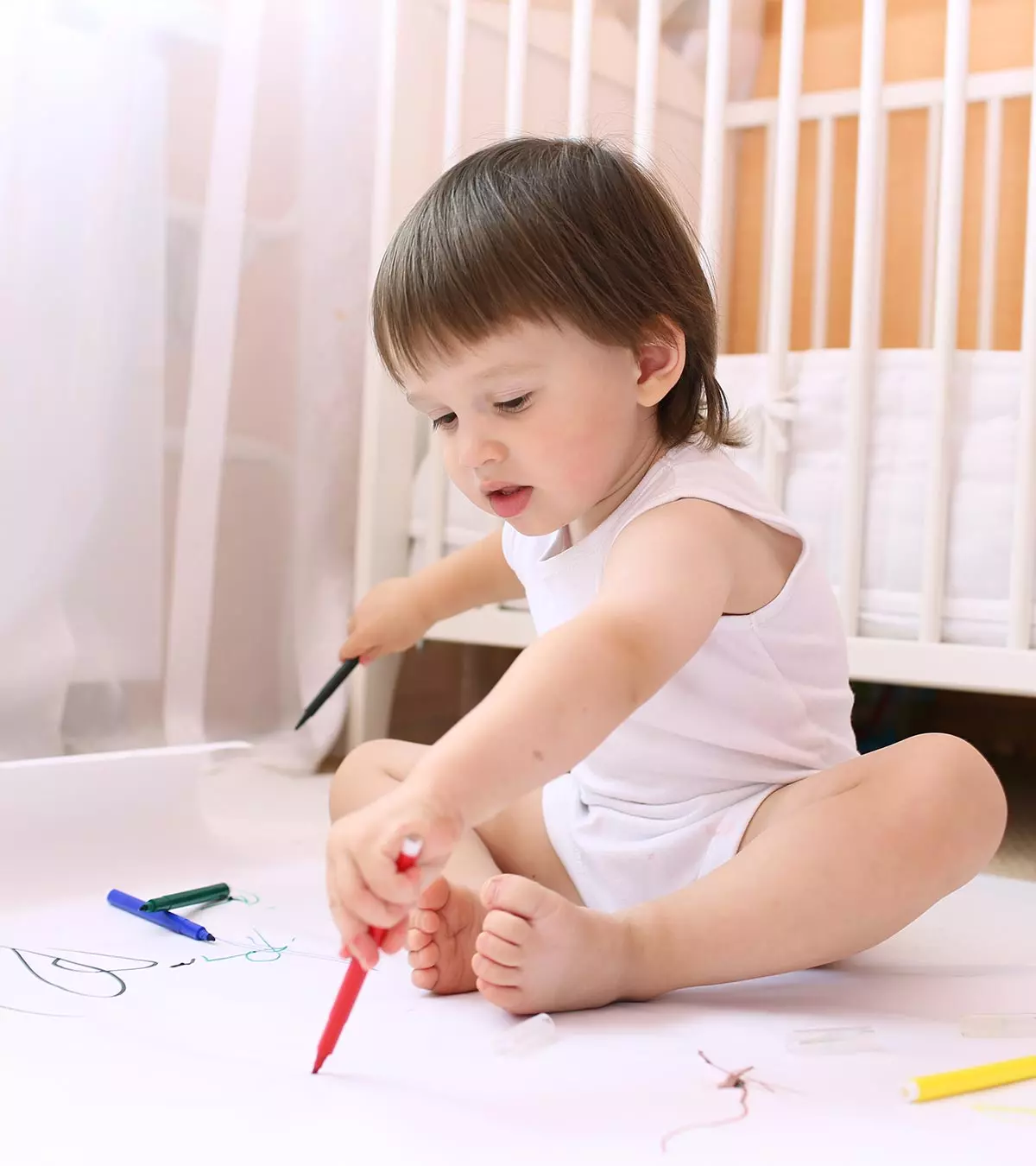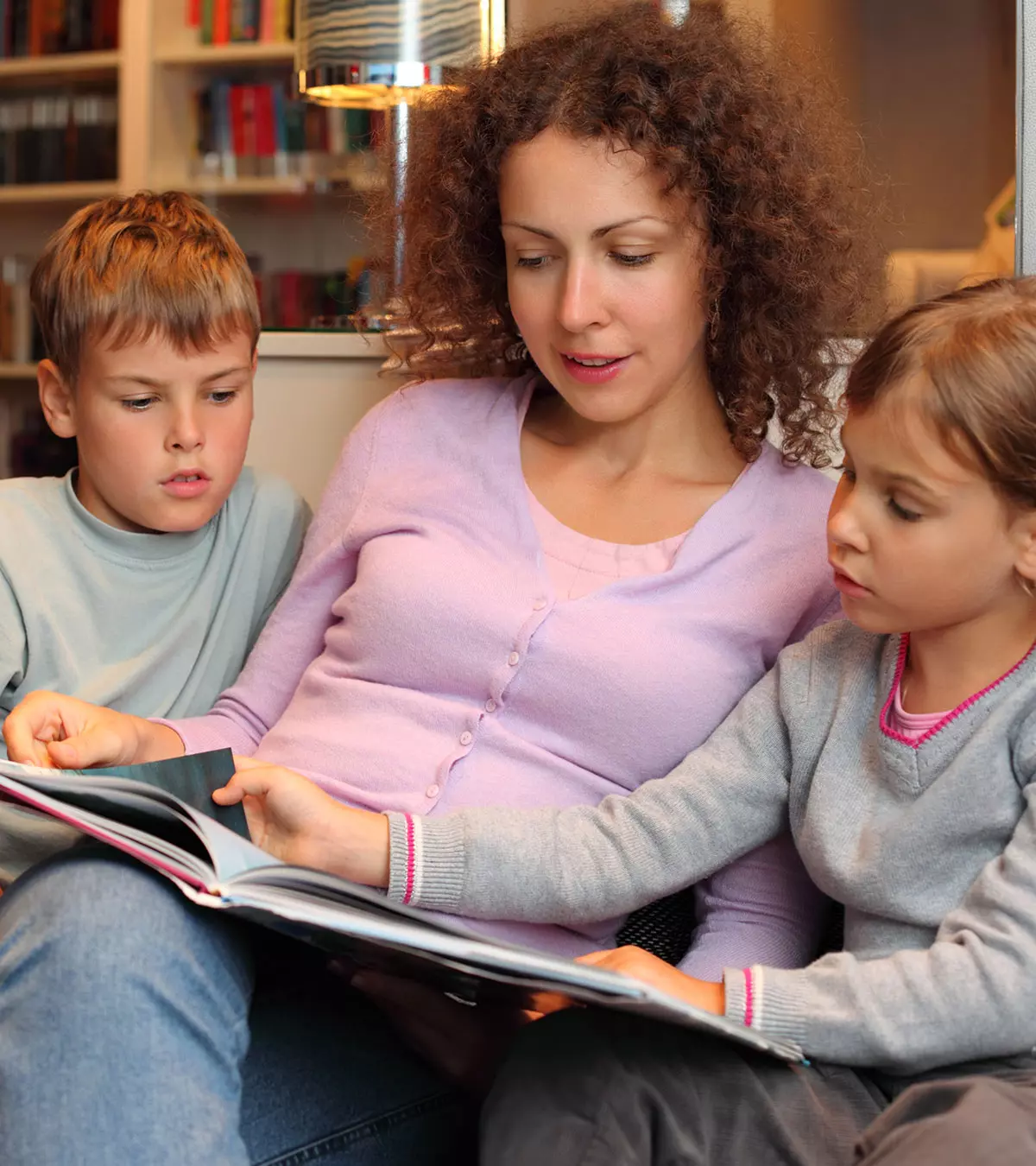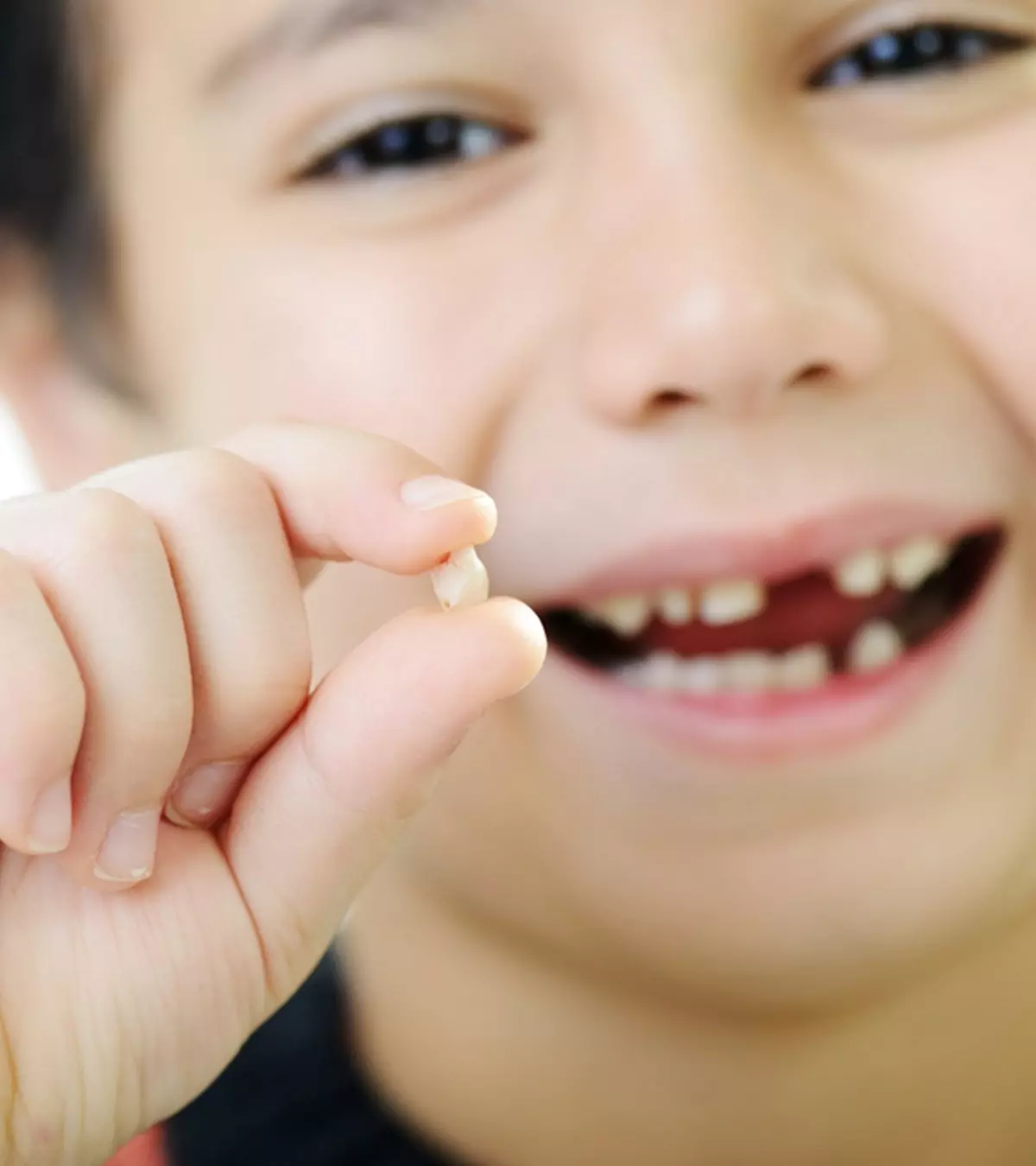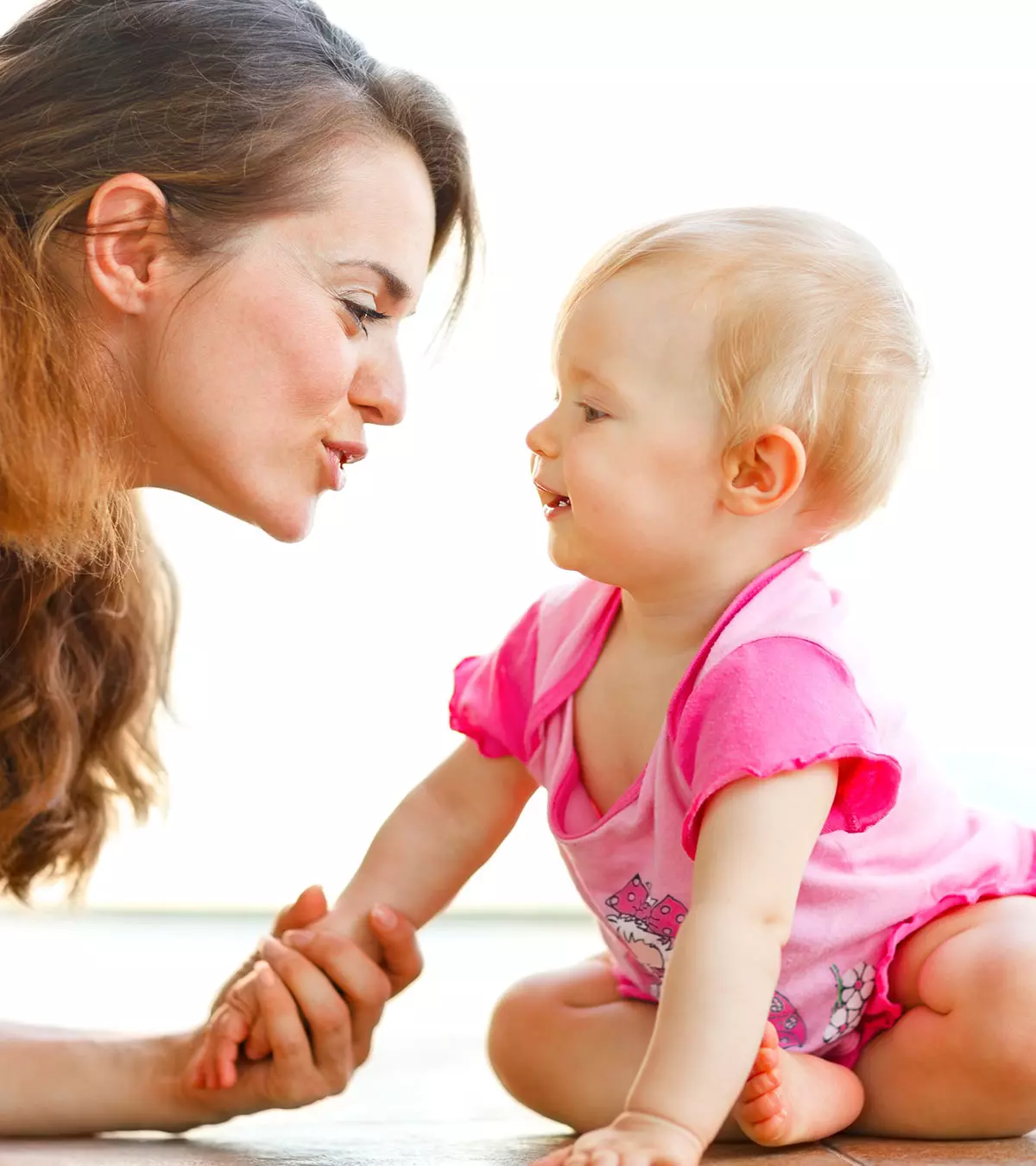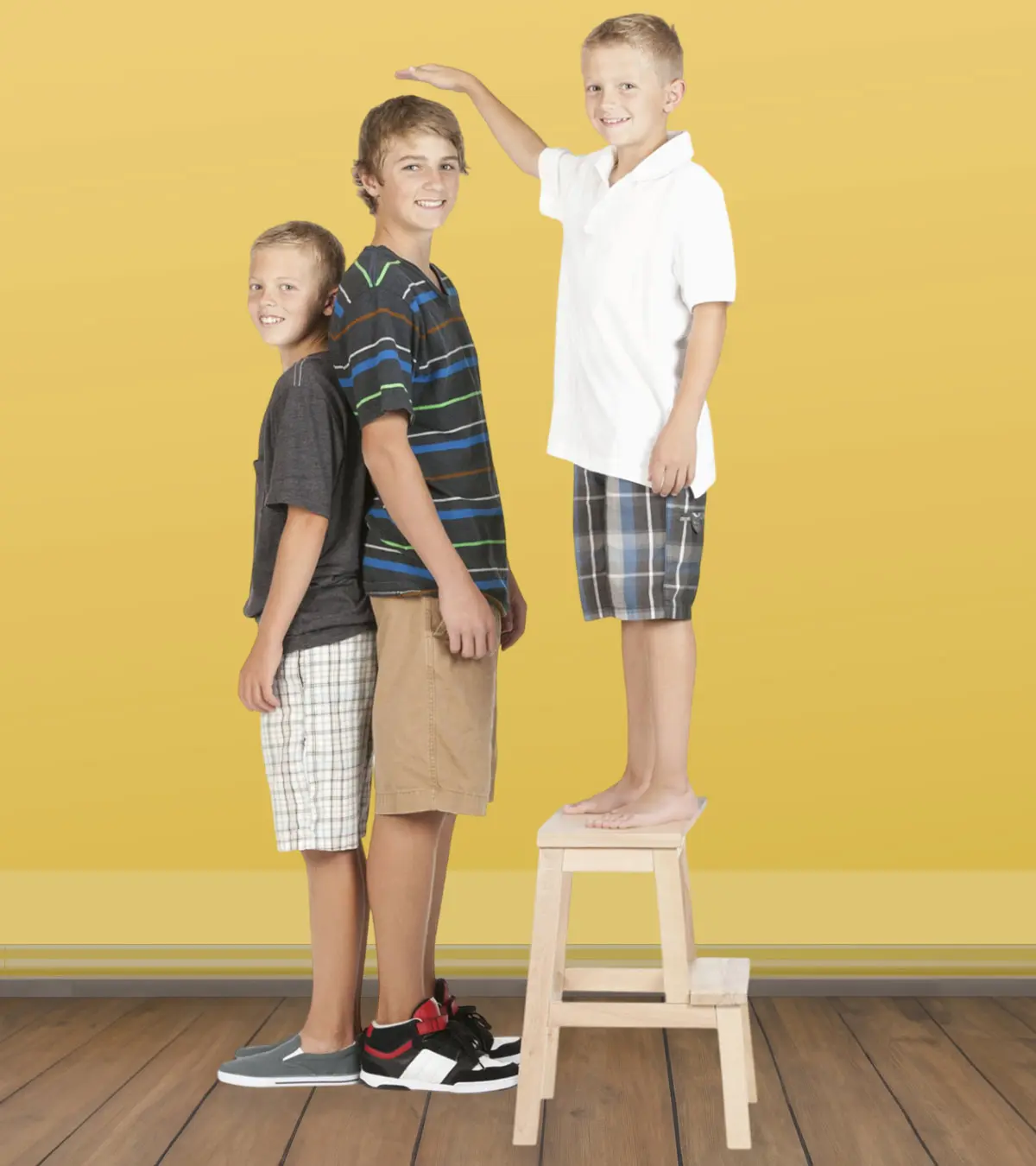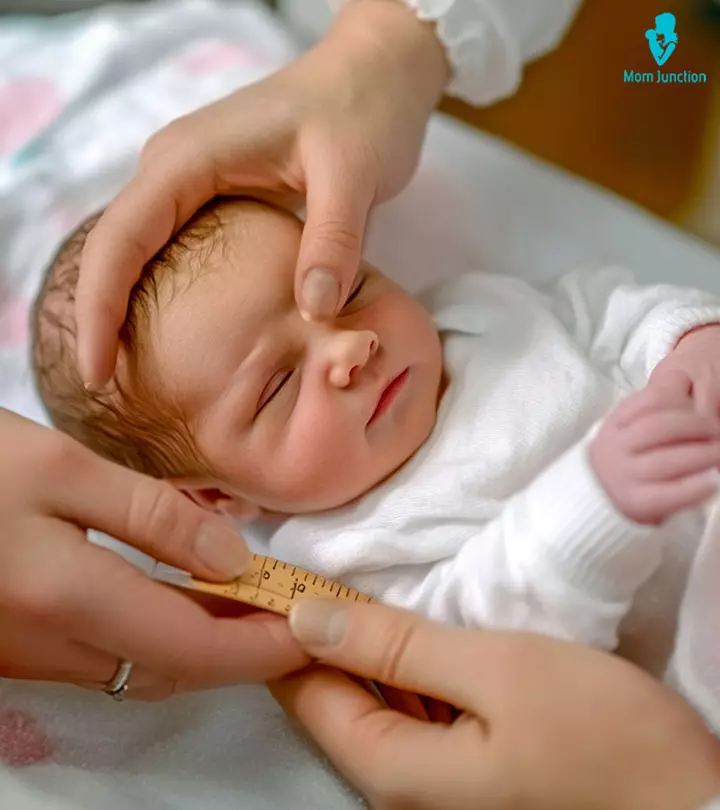

Image: Midjourney/ MomJunction Design Team
While all parents want their children to learn morally and socially acceptable conduct, it is only natural for children to err. You may often feel confused about what is right and wrong when it comes to parenting and child rearing. Strict parenting or lenient parenting? Authoritative parenting or permissive parenting? There are so many ways to raise a child. Parenting styles play an important role in raising a child and fostering a healthy parent-child relationship. One such lingering question the modern age parents encounter is if it is okay to punish kids and, if yes, what may be a constructive punishment for kids. Punishment need not always be stern, such as grounding them or canceling their allowance for a week. In fact, harsh behavioral correction or behavior modification methods may cause more harm than good. Instead, punishments can be creative and educational. Plunge into this post as we present you with creative punishment ideas to help your little ones learn from their mistakes.
 Did you know?
Did you know?Physical punishments to discipline children can have negative and lasting impacts on their physical and mental well-being.
According to a study by the American Professional Society, regularly or occasionally spanked individuals are more likely to exhibit aggressive behavior and experience long-term emotional upset. Also, spanking may sometimes result in the child being better behaved in the short term, but it seldom or never helps make children behave better in the long run.
Perceived adverse outcomes of corporal punishment
Source: Attitudes, beliefs, and perceived norms about corporal punishment and related training needs among members of the “American Professional Society on the Abuse of Children”; Child Abuse & NeglectTherefore, parents should avoid spanking and opt for disciplinary measures that are both effective and gentle. The following sections will suggest various punishment ideas that are not harsh but effective in correcting a child’s behavior.

Key Pointers
- Give children firm, logical, and creative consequences for misbehavior.
- Examples of consequences could include making a crafty wreath for their room door, cleaning the bookshelf, and holding their tongue.
- If a child misbehaves, adjust their bedtime by five to ten minutes or according to what is appropriate.
- Assign tasks such as serving dinner, walking the dog, or completing chores as punishment.
- Always reassure the child of your support and affection, regardless of their behavior.
Top 11 Creative Punishment Ideas For Your Kids
Creative punishments, or creative consequences, will help your kids understand what they may have done wrong and help them move in the right direction, without feeling hurt or humiliated. This form of punishment is called positive reinforcement. This makes it less likely that the negative behavior will reoccur in the future. Here are ten recommendations for creative punishment that you can use with your kids:
1. Time in instead of time-out
- Ask your kid to try creative things during their ‘time-out’ that will make it a ‘time-in.’ Confining and grounding kids can cause them to revolt, which is not very helpful in correcting their behavior.
- Set consequences like making a crafty wreath for their room door, cleaning the bookshelf or completing a few pages of cursive handwriting.
2. Take the pet out for a run
- If your kid has done something wrong in the house, let them go out on time off and cool it out.
- Ask your kid to take the pet out for a stroll or run. In case you do not have a pet, you can ask your kid to run a few rounds of the yard or the garden.
3. Increase bedtime
- Sometimes, you can adjust your kid’s bedtime directly to the way they behave the day.
- If your kid has been naughty and you want to punish them, bring up their bedtime by five to ten minutes or whatever you feel is correct.
- The days they have been good, give them more playtime. Such practices can help them learn self-discipline.
4. Make them serve dinner
- If your kid does not make it to the dinner table on time, despite repeatedly reminding and calling, make them the server instead. Not only does this instill a sense of responsibility, but it also shows them that there are consequences for their actions.
- Make sure your kid has washed their hands before serving though and see to it that the food is not too hot that may cause an accident.
5. Power of practice
- If your kids have problems at school due to badly written homework or classwork, make sure they get enough practice at home, instead of punishing or scolding them.
- Get a few photocopies of the assignments and make them sit at home and copy it out repeatedly.
- Also, make sure they take a little extra time to improve their handwriting.
 Point to consider
Point to consider6. Hold that tongue
- If your kid uses a bad word or is rude, get him to hold his tongue, quite literally.
- Ask them to take their tongue out and hold it in their fingers, for a few minutes.
- When it comes to teaching children to behave well, consequence-based learning may be a more effective approach than relying on tough love.
7. Chore in return
- For every time your kid leaves the room in a mess or forgets to complete a responsibility, hand them a chore for the day.
- Options could be drying the dishes, doing the dishes, setting the dinner table, watering the plants, and anything age appropriate.
8. A no-fight zone
- If your kids seem to fight a lot, ask them to create a no-fight zone inside the house. This is a form of reinforcement learning that may teach your children about boundaries.
- Let them cut out pictures of favorite things from old magazines and stick them around the house. The rule is that they will not be able to fight in front of the images.
9. Set a time
- If your kids do not listen or take too much time to finish something you have asked them to do, set a timer.
- Instead of asking them to do it on the watch, set a timer and tell them that if it rings before they are finished, you will take off some or other privileges.
10. Creative choices
- Ask your kids to write creative punishments on different slips of paper and put them in a jar.
- Each time you need to punish, ask them to take out a chit and do whatever is written on it. This helps them feel like they are part of the process since they can come up with the creative punishments being used.
 Experts say
Experts say11. Loss of privilege
- Take away their privileges like play dates, TV time, or favorite shows to make them realize the consequences of bad behavior.
- Withdrawing privileges that your child doesn’t care about will not be effective. Carefully decide which privilege to be taken away.
- Implement this consequence sparingly to maintain its effectiveness. Frequent use may diminish its impact.
- Enforce short-term withdrawals the same day of the misbehavior.
Later, when your child has calmed down, you can ask them to think about their actions and whether they think an apology is in order. Use the punishment ideas here to discipline your kids in a way that will not humiliate them, but help them make better use of their time.
Frequently Asked Questions
1. What type of punishment is appropriate for a child?
Punishments that might include delayed privileges, parental control, and temporary withdrawal of their favorite items might be effective. Making them bear the consequences of their actions might teach them to control their actions.
2. Is punishment suitable for a child?
While punishments can be effective in stopping inappropriate behavior in the short term, they may have a negative impact on children and be considered a form of negative reinforcement. Hence, the American Academy of Pediatrics recommends using disciplinary methods, rather than physical or verbal punishments, to control their child’s behavior (1).
Teacher and mother Julie Louisson suggests an alternative way to keep yourself from punishing your child. She says, “My best discipline technique: Presence. By ‘presence’ I mean having our attention focused fully on our child and the moment we’re experiencing with them (not on the phone call we just finished or where we have to be in ten minutes time). Our total presence with our children enables us to tune in to them and to understand what’s really going on. Without presence, that fearful, frustrated voice in our head gets in the way — ‘He’s blatantly disrespecting me!’ it shouts. ‘He’s not getting away with it!’ With presence, we get curious and ask illuminating questions, such as, ‘Why is he behaving this way?’ The effectiveness of the way to respond to our child in any given moment depends on whether we’re coming from a place of fear and frustration or a place of presence. In fear & frustration, we tend to make a declaration of our authority and arbitrarily remove a ‘privilege’ in order to control the situation. In presence, we’re more likely to acknowledge our child’s perspective and find an empowering, rather than a punitive, response (i).”
3. What does punishment do to a child?
Using punishment methods such as spanking, yelling, or slapping as a means of discipline could have harmful long-term effects on a child’s mental and physical well-being. They may also make children aggressive and intolerant of future disciplinary actions (2). In some cases, they may also have to undertake behavioral therapy to overcome their issues. These kinds of punishment methods are emotionally harmful for the child and makes them believe that something is wrong with them, instead of something wrong with their behavior.
4. How can I effectively communicate with my child about their behavior?
Choose a calm time to talk. Share your observations, listen to their side, and ask specific questions. Discuss the consequences of their actions, offer support, and use positive reinforcement to encourage good behavior.
5. How to implement age-appropriate punishments?
Consider the child’s age and developmental stage to strategize age-appropriate punishments. Time-outs work well for younger children, while older children may respond better to losing screen time. Extra chores or time limits on outings might be effective for preteens and teens.
When your child has calmed down after you have tried these strategies, you can ask them to think about their actions and whether they think they should apologize. Use the punishment ideas given here to discipline your kids in a way that will not humiliate them but help them make better use of their time. We also recommend you try out these effective ways to discipline a child and explore more about positive reinforcements for kids to modify their behavior.
Infographic: Logical Punishments To Discipline Children
When a child makes a mistake, he/she must know that no wrong is without consequences. However, adhering to beating and yelling at the child can have a more negative impact on their mental health. Thus, parents must be creative when approaching their child in such a situation. The infographic below suggests some good punishment ideas that can help you discipline your child without resorting to violence.
Some thing wrong with infographic shortcode. please verify shortcode syntaxIllustration: Creative Punishment Ideas For Kids To Realize Their Mistakes
Image: Stable Diffusion/MomJunction Design Team
Personal Experience: Source
MomJunction articles include first-hand experiences to provide you with better insights through real-life narratives. Here are the sources of personal accounts referenced in this article.
i. My best discipline technique.https://medium.com/family-matters-2/my-best-discipline-technique-720135b627e0
References
- Discipline vs. punishment: What works best for children?
https://publications.aap.org/aapnews/news/8735?autologonchecked=redirected - Joan Durrant and Ron Ensom; (2012); Physical punishment of children: lessons from 20 years of research; US National Library of Medicine
https://www.ncbi.nlm.nih.gov/pmc/articles/PMC3447048/ - PUNISHMENT OR DISCIPLINE.
https://www.fatherhood.gov/for-programs/program-activities/punishment-or-discipline - What’s the Best Way to Discipline My Child?
https://www.healthychildren.org/English/family-life/family-dynamics/communication-discipline/Pages/Disciplining-Your-Child.aspx
Community Experiences
Join the conversation and become a part of our nurturing community! Share your stories, experiences, and insights to connect with fellow parents.
Read full bio of Dr. Holly Schiff
Read full bio of Debolina Raja
Read full bio of Harshita Makvana
Read full bio of Apoorva K

